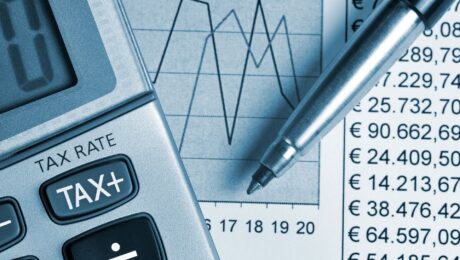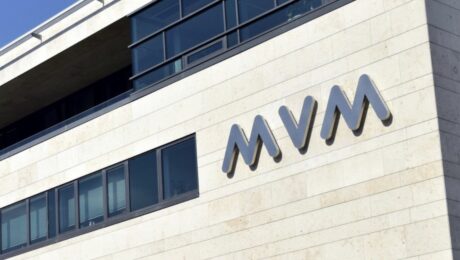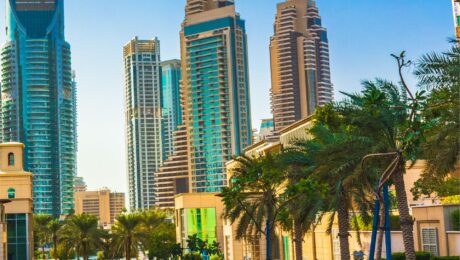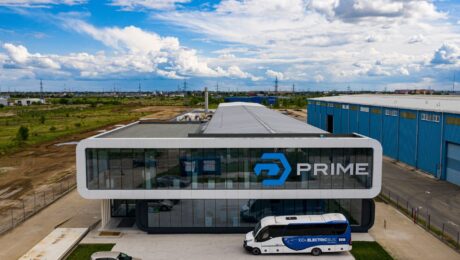Import Taxes and Their Impact on Romanian Companies
Dr. Radu Pavel, Coordinating Attorney of the Romanian Law Firm Pavel, Mărgărit and Associates, emphasizes the importance of understanding the commercial and legal implications arising from the new international customs policies, as well as the need for a prompt and well-substantiated response from affected companies, including those in Romania, to safeguard their economic interests and avoid the negative consequences of abusive or incorrect customs decisions.
The Trump Administration has announced that new import taxes will come into force on imports from countries such as China, Mexico, and Canada. These measures will lead to higher prices for goods entering the United States, but their effects will also be felt in Europe, including Romania. Even though our country is not on the blacklist, Romanian companies may be indirectly affected.
How can a Customs Decision Be Challenged in Romania?
In Romania, challenging a decision issued by the customs authority requires filing an administrative complaint, which must be submitted to the authority that issued the decision. This can be done within 45 days of receiving the decision notification or the administrative act that determined the customs obligation.
At this stage, individuals or companies in Romania who consider themselves harmed by imposing an incorrect customs duty, misclassifying goods, or any abusive customs decision may submit a written complaint. The complaint must be substantiated with supporting documents such as commercial invoices, customs declarations or transport documents.
Additionally, those contesting a customs decision may argue that the decision is legally incorrect based on customs regulations or applicable trade treaties. The customs authority will review the complaint and issue a response. If the complaint is rejected, the next step involves taking the matter to court.
Challenging a customs decision in court
Legal action must be filed within 30 days of receiving the response to the administrative complaint. The court will analyze the legality of the customs authority’s decision and verify whether it complies with current legislation. If the trial court rules in favor of the party contesting the customs decision, the authority must take appropriate corrective measures. Otherwise, the dissatisfied party may file an appeal with the Court of Appeal within 15 days from the notification of the ruling. The Court of Appeal will thoroughly assess whether the Tribunal correctly applied the law and may uphold or amend the decision.
„All these international tax updates in Romania can represent a real challenge for a company in Romania. Even if not directly targeted, companies can be indirectly affected through supply chains, increased costs or customs delays. Adapting to this new global context requires a sound understanding of international trade regulations and correctly interpreting applicable legal provisions. With the support of a lawyer for taxes in Romania or a tax attorney in Romania, risks can be significantly reduced, allowing companies to remain competitive and compliant with current requirements,” said Dr. Av. Radu Pavel, Managing Partner of the Romanian Law Firm Pavel, Mărgărit, and Associates.
Types of decisions issued by customs authorities
Customs authorities in Romania may issue several types of decisions, depending on the nature of the control and the findings. The most common are decisions to regularize additional tax obligations. These arise after a customs inspection during which inspectors find that certain customs duties and import taxes in Romania, such as VAT or import duties, were omitted or incorrectly declared and issue a decision imposing the payment of the resulting differences.
Authorities may also issue decisions concerning the application of customs or other import taxes in Romania in cases of suspected undervaluation of goods or incorrect declaration of origin. Additionally, when a company requests the reimbursement of overpaid or erroneously paid customs duties, the authority may reject the request if the legal conditions are not met.
Furthermore, sanctioning decisions, including fines and other contravention measures, may be issued when violations of customs regulations are found. Customs authorities may also implement administrative control and monitoring measures, including the temporary detention of goods or the refusal of entry into the country.
- Published in News
Hungary’s MVM Aims to Acquire E.ON Romania: A High-Stakes Move for Energy and Diplomacy
Romania’s energy landscape faces a pivotal moment following the December 16, 2024, announcement that Hungary’s state-owned energy conglomerate, MVM, intends to acquire a 68% stake in E.ON Energie Romania. Valued at approximately EUR 205 million, this deal would give MVM direct access to around 3.4 million Romanian customers, spanning natural gas and electricity services.
While the acquisition appears to be a straightforward business transaction at first glance, it has triggered intense debates over national security, potential Russian influence, and the broader implications for Romanian-Hungarian relations. Against a background of recent political uncertainties and heated rhetoric from nationalist groups, the future of this acquisition hinges not only on corporate negotiations but also on regulatory and diplomatic manoeuvring.
Spotlight on National Security
A central concern among Romanian officials is the source of MVM’s capital. Although MVM is state-owned by Hungary, some fear that hidden financial channels might be linked to Russian gas transactions, potentially increasing Moscow’s indirect influence in Romania’s critical energy sector. This fear is particularly acute after a major political scandal that saw presidential elections cancelled after alleged foreign interference. While no direct evidence of Russian meddling has surfaced publicly, the heightened sensitivity around such matters is driving calls for thorough oversight of the MVM-E.ON deal.
Energy Minister Sebastian Burduja has repeatedly stressed the need for a diligent review to ascertain whether the acquisition aligns with national security interests. Burduja’s statements signal that the government intends to comb through the proposed deal, examining standard financial and competition regulations and potential security pitfalls.
Financial and Market Scrutiny
Equally contentious is the acquisition’s price tag—approximately EUR 205 million. Critics, including some Romanian officials, argue that the valuation surpasses E.ON’s actual market worth, pointing to the possibility that MVM might be “overpaying” for strategic or political reasons rather than commercial logic alone. Such speculation intensifies the scrutiny surrounding the origins of MVM’s capital and the long-term strategic goals behind the purchase.
Beyond market valuation, Romanian authorities are looking at competition compliance and consumer impact. If MVM acquires a substantial share of Romania’s energy distribution, it could reshape pricing, investment priorities, and overall market dynamics. Although the Romanian government typically encourages foreign investment, particularly in infrastructure, the complexity of this deal has put an unprecedented spotlight on balancing commercial benefits with national and regional security considerations.
Rising Nationalist Backlash
Not all the opposition originates from government corridors. Romanian nationalist voices have labelled the acquisition as “treason,” urging officials in Bucharest to block the deal outright. They view a Hungarian state-owned enterprise controlling a critical piece of Romania’s energy supply as a direct threat to national sovereignty. These calls have amplified tensions that occasionally flare up between the two neighbours, evoking historical grievances and fears of undue Hungarian influence.
Romania’s ongoing sensitivity to external interference is a complicating factor in the public debate. Though devoid of concrete proof of Russian involvement, the recently nullified presidential election has sharpened the public’s awareness of how foreign players could potentially sway domestic outcomes—especially in a crucial sector like energy.
Diplomatic Dimensions: The Schengen Connection?
A notable dimension of this story is Hungary’s endorsement of Romania’s bid to join the Schengen Area. Joining Schengen remains a strategic priority for Romanian policymakers, as it would facilitate cross-border travel and strengthen the country’s integration within the European Union. Hungarian officials have repeatedly supported Romania’s Schengen ambitions—leading some observers to speculate that the MVM-E.ON deal could be part of a broader quid pro quo.
Though neither government has confirmed such a link, the timing feeds speculation that the transaction might be a diplomatic bargaining chip. If Romania approves the acquisition with limited objections, Hungary’s vote of confidence for Romania in EU forums may solidify. Conversely, if Romanian regulators either stall or block the deal, it could raise questions about whether Budapest might withdraw its support on the Schengen matter.
Potential Outcomes, What They Mean for Romania
Regulatory Hurdles
Romanian competition and national security authorities could impose stringent conditions or veto the acquisition. Such measures might demand full disclosure of MVM’s financial backers or obligations to invest in local infrastructure to mitigate security risks.
Energy Market Realignment
MVM’s expanded footprint could reshuffle Romania’s gas and electricity sectors if the deal moves forward. This could affect pricing, regional energy cooperation, and Romania’s relationships with other European suppliers.
Diplomatic Fallout or Opportunity
A streamlined approval might be cast as a gesture of goodwill, aligning with Hungary’s overt support for Romania’s Schengen ambitions and potentially reinforcing bilateral ties.
A drawn-out review or rejection could invite criticism from Hungary and fuel nationalist sentiment within Romania—potentially complicating broader European negotiations.
Public Trust and Transparency
Amid ongoing concerns about foreign interference and manipulative media campaigns, Romanian officials will be under intense pressure to ensure transparency. A rigorous review process could bolster public trust, regardless of whether the deal proceeds.
The MVM-E.ON acquisition drama underscores the intricate interplay of economics, security, and diplomacy in Romania’s evolving landscape. With the high stakes, Romanian regulators and political leaders are walking a tightrope—aiming to attract foreign investment while shielding critical infrastructure from undue external influence.
Simultaneously, the country’s desire to join Schengen introduces an extra layer of diplomatic complexity. Whether or not Romania decides to give MVM the green light, the outcome will reverberate well beyond corporate boardrooms, potentially shaping Romania’s European integration trajectory and the region’s energy equilibrium for years to come.
At Lobby Romania, we remain committed to delivering in-depth analysis of the nation’s most pressing issues. Stay connected for further updates on how this deal unfolds—and what it means for Romania’s future in Europe’s energy and political arenas.
- Published in News
Time Off Guru Launches in Romania, Elevating Leave Management for Businesses
Time Off Guru, a leading leave management software, proudly announces its official launch in Romania. This innovative platform is designed to streamline employee leave management, replacing outdated paper-based systems with a more efficient, transparent, and user-friendly solution.
Revolutionizing Leave Management
Time Off Guru Romania simplifies the complexities of managing employee leave. The platform offers a centralized system for employees to submit leave requests, track their leave balances, and view company-wide vacation schedules. It provides streamlined approval workflows, comprehensive reporting, and enhanced staffing insights for managers, making leave management both strategic and efficient.
Key Features and Benefits for Romanian Companies
Enhanced Transparency: Employees can easily view their leave balances and upcoming absences, fostering trust and empowering them to manage their time off effectively.
Streamlined Request Process: The platform eliminates the need for paper forms and lengthy email chains. Employees can submit leave requests electronically, saving valuable time and reducing the risk of errors.
Improved Approval Workflow: Managers can easily review team schedules, assess staffing needs, and approve or deny requests quickly, ensuring a smooth and efficient process.
Reduced Administrative Workload: Automated calculations of remaining leave balances and comprehensive report generation free up HR and management time for more strategic activities.
Boosted Employee Morale: A transparent and streamlined leave management system demonstrates that employee well-being is a priority, leading to higher job satisfaction and productivity.
The Importance of E-Management Systems Nowadays
Switching from paper-based leave management to an electronic system offers numerous advantages:
- Greater Efficiency and Speed: Electronic systems allow for faster processing of leave requests and approvals, significantly reducing the time required for these tasks compared to manual paper processes.
- Improved Accuracy: Automated systems reduce the risk of human errors and ensure that leave data is accurately recorded and maintained.
- Enhanced Security: Digital systems offer better protection for employee data, with secure storage and access controls that are impossible with paper records.
- Environmental Benefits: Reducing the reliance on paper helps decrease waste and supports sustainability initiatives within the organization.
With extensive experience and a proven track record, Time Off Guru has processed over half a million leave requests for over 1,000 organizations, serving over 50,000 users. The system is designed with robust security measures, complying with ISO standards for information security and IT services management, ensuring your data is safe and secure.
About Time Off Guru
Developed by IBS Bulgaria, Time Off Guru provides innovative solutions for efficient leave management. By adopting this modern approach, businesses can eliminate paper trails, reduce administrative costs, and foster a more employee-centric work environment.
Businesses in Romania can now take advantage of a modern, efficient, and transparent leave management solution. To learn more or start a free trial, check the free test from Time Off Guru.
- Published in News
Top Banks in Romania: 2024 Ranking and Analysis
The Romanian banking sector continues to be a cornerstone of the national economy, demonstrating notable growth and resilience. This ranking highlights the top banks in Romania based on their assets, showcasing their strengths and market positions.
For more details, check the complete information here.
1. Banca Transilvania (BT)
Overview: BT remains the largest bank by assets. Strengths: Financial performance, extensive customer base, and innovation in digital banking.
2. Banca Comercială Română (BCR)
Overview: Part of the Erste Group, BCR holds a strong second position. Strengths: Extensive branch network and diverse financial solutions.
3. CEC Bank
Overview: CEC Bank has surged to the third position. Strengths: Significant asset growth and strategic market expansion.
4. BRD – Groupe Société Générale
Overview: BRD slips to fourth but maintains strong corporate banking services. Strengths: Solid financial standing and popular digital services.
5. ING Bank
Overview: Known for innovative banking solutions. Strengths: User-friendly digital platforms and customer satisfaction.
6. Raiffeisen Bank
Overview: Notable for its excellent customer service. Strengths: Reliable financial health and widely appreciated digital platforms.
7. UniCredit Bank
Overview: Prominent in corporate banking and digital advancements. Strengths: Strong corporate services and secure online banking.
8. Exim Bank
Overview: Key player in trade and export financing. Strengths: Specialized financial products and business support.
9. Alpha Bank
Overview: Stable and reliable with a wide range of services. Strengths: Comprehensive product offerings and strong customer support.
10. OTP Bank
Overview: Steady growth and customer-focused services. Strengths: Personalized banking solutions and innovation in digital banking.
The Romanian banking sector showcases dynamic changes and competitive strategies, with Banca Transilvania, BCR, and CEC Bank leading.
These banks exemplify robust financial performance, strategic growth, and customer-centric innovations, contributing to Romania’s strong and resilient financial ecosystem.

- Published in News
Romanian PR Agency Lighthouse Represents Eurocom in Romania and Republic of Moldova
Eurocom Worldwide, the global PR network, is strengthening its representation in Central and Eastern Europe by appointing Lighthouse PR, headquartered in Bucharest and covering both the Romanian market and the Republic of Moldova.
Founded by Ana Maria and Steve Gardiner, Lighthouse PR is a strategic PR and communications agency that brings a wealth of global expertise with a team of senior communications specialists offering a background of C-level management roles in large corporations. Lighthouse PR focuses on B2B and corporate communications with a strong focus on international tech companies and sectors such as energy, finance, pharma, retail & FMCG, industrial production, real estate, and construction.
Moreover, Lighthouse PR is Romania’s exclusive member of the Crisis Communication Network Europe (CCNE), a group of specialist crisis consulting agencies dedicated to European markets. The agency obtained the ISO 27001 certification for information security after securing the ISO 9001 certification for its quality management system in 2023.
The Lighthouse PR strategy has been designed to develop strong, long-term partnerships with our clients, whom we support 24/7/365 with the best communication consultancy Romania offers and other partners with whom we share a vision based on trust, expertise and collaboration. Joining Eurocom Worldwide is essential in strengthening our position as a trusted partner for companies looking for PR consultants who deliver above and beyond expectations.
Ana Maria Gardiner, co-founder of Lighthouse PR
Eurocom Worldwide is one of the most significant independent PR and marketing communications networks focusing on key technology, industrial and commercial sectors. Founded in 2002, it comprises 31 member agencies in 54 offices covering more than 90 countries across all five continents. Eurocom Worldwide has a strong presence in Central & Eastern Europe, covering over 20 countries.
- Published in News
Romanian Entrepreneurs Started Setting Up Companies in Dubai
In recent years, the entrepreneurial landscape in Romania has undergone significant transformations, with rising taxation and regulatory complexities posing challenges for aspiring business owners. As a result, many Romanian entrepreneurs seek alternative destinations to nurture their growth ambitions. Among these, Dubai has emerged as a beacon of hope, offering a compelling blend of business-friendly policies, a thriving commercial ecosystem, and a global network of opportunities.
So, while the Government considered taxation a way to get more money for the national budget, the Romanian entrepreneurs considered setting up their businesses elsewhere, especially in countries with low taxation. Dubai is one of their choices, but there are others alike.
Why Dubai Beckons Romanian Entrepreneurs
The decision of Romanian entrepreneurs to establish their business in Dubai is driven by a multitude of factors, including:
- Tax Advantages: Dubai’s tax structure is renowned for its simplicity and attractiveness. Companies in Dubai enjoy a zero corporate tax rate and are exempt from personal income tax for non-resident shareholders. This tax-neutral environment provides a significant financial advantage for Romanian entrepreneurs, allowing them to retain more of their profits and reinvest them in their businesses.
- Regulatory Simplicity: Dubai’s regulatory framework is known for its ease of compliance and transparency. The government has streamlined the business registration process, making it more straightforward for entrepreneurs to establish their companies and obtain the necessary licenses. This streamlined approach reduces administrative burdens and allows businesses to focus on their core operations.
- Diverse Business Ecosystem: Dubai boasts a diverse and dynamic business ecosystem, encompassing a wide range of industries, sectors, and multinational corporations. This vibrant environment provides Romanian entrepreneurs access to a vast network of partners, suppliers, and potential customers, fostering business growth and opportunities for collaboration.
- Gateway to Global Markets: Dubai is a strategic gateway to the Middle East, Africa, and South Asia, providing Romanian entrepreneurs access to a vast and untapped market of over 3 billion consumers. This strategic location allows businesses to expand their reach and tap into new revenue streams.
The migration of Romanian entrepreneurs to Dubai signifies a paradigm shift in entrepreneurial thinking. It reflects a strategic approach beyond mere tax considerations and instead embraces a holistic assessment of the business environment, regulatory landscape, and global connectivity. With its unique blend of these factors, Dubai emerges as an attractive destination for Romanian entrepreneurs seeking to propel their ventures to new heights.
Emerging Opportunities and Challenges
As Romanian entrepreneurs venture into the Dubai business landscape, they encounter opportunities and challenges. While the tax advantages and business-friendly environment provide a strong foundation, understanding cultural nuances, adapting to local business practices, and establishing a solid network of connections are crucial for success.
Supportive initiatives, such as government programs, business matchmaking events, and networking opportunities, are emerging to assist Romanian entrepreneurs in navigating the Dubai business scene. These initiatives provide valuable guidance and resources, helping entrepreneurs overcome challenges and maximize their potential.
The decision of Romanian entrepreneurs to set up companies in Dubai marks a significant milestone in the evolution of their entrepreneurial journeys. Dubai’s business-friendly environment, diverse ecosystem, and global connectivity provide a fertile ground for growth and innovation. As Romanian entrepreneurs embrace this new chapter, they are poised to contribute to Dubai’s economic success and establish a strong footprint in the global marketplace.
- Published in News
Eyes on Romania: Investors Grew the M&A Market above USD 7 Billion
Romania remains on investors’ radars despite the rising cost of money and inflation. In value, the M&A market exceeded 7 billion dollars in 2023 but was massively supported by two mega transactions. This year is still under the sign of growth, Romania News reports.
The takeover of Profi by Ahold Delhaize, the owner of Mega Image, for $1.4 billion and the sale of Enel Romania to the Greeks from PPC for $1.3 billion are the essential local transactions and the two mega transactions (worth over 1 billion dollars) from last year. Also, in 2023, there were three other agreements of 200-300 million dollars each, with medium-sized transactions vital for the health of the M&A market.
The steps in a merger and acquisition are complex, but with the help of specialized lawyers, investors overcome any legal challenges.
In 2023, 241 transactions were initiated in Romania, with a total value estimated at almost 7.1 billion dollars, according to an analysis by the audit and consulting company EY. It is about the total value of the market, i.e. both transactions with communicated and uncommunicated value, but estimated by EY, are taken into account.
In terms of volume, the market decreased slightly compared to the maximum reached in 2022 – when 257 agreements were signed, 16 more than last year – but in terms of value, it is the best year (plus 6%).
The data show that Romania remains on the radar of investors in the M&A market despite the rising cost of money and still high inflation, factors that have led to a cautious approach, especially among buyers. However, in value, the market exceeded 7 billion dollars because two mega transactions supported it.
The takeover of Profi by Ahold Delhaize, the owner of Mega Image, for $1.4 billion and the sale of Enel Romania to the Greeks from PPC for $1.3 billion are the most critical local transactions and the two mega transactions (worth over 1 billion dollars) from last year.
The corporate and M&A market is also expected to grow in Romania this year. The country is attractive to investors, and the economic outlook for 2024 is somewhat optimistic, favouring the decision to invest.
- Published in News
EIT Innoenergy Becomes Minor Shareholder at Prime Batteries Technology after EUR 1 Billion Investment
The European conglomerate EIT InnoEnergy, which includes banks and corporations from all across Europe, including ING, Volkswagen, and Siemens, co-founded in 2008 with the European Union, makes a sizeable investment in the Romanian energy storage solution supplier Prime Batteries Technology. The company has declared an investment of more than one billion euros to enhance the manufacture of batteries and storage systems.
As ValahiaNews reports, EIT InnoEnergy formally announced its purchase of shares from Prime Batteries Technology in Ilfov on Thursday in Brussels. Florin Spataru, the Economy Minister, Adina Vâlean, the European Commissioner for Transport, and several MEPs from Romania attended the event.
„Central and Eastern Europe is becoming an important player in the energy transition and battery production and we are glad to see a Romanian company developing”
Adina Vâlean, European Commissioner for Transport
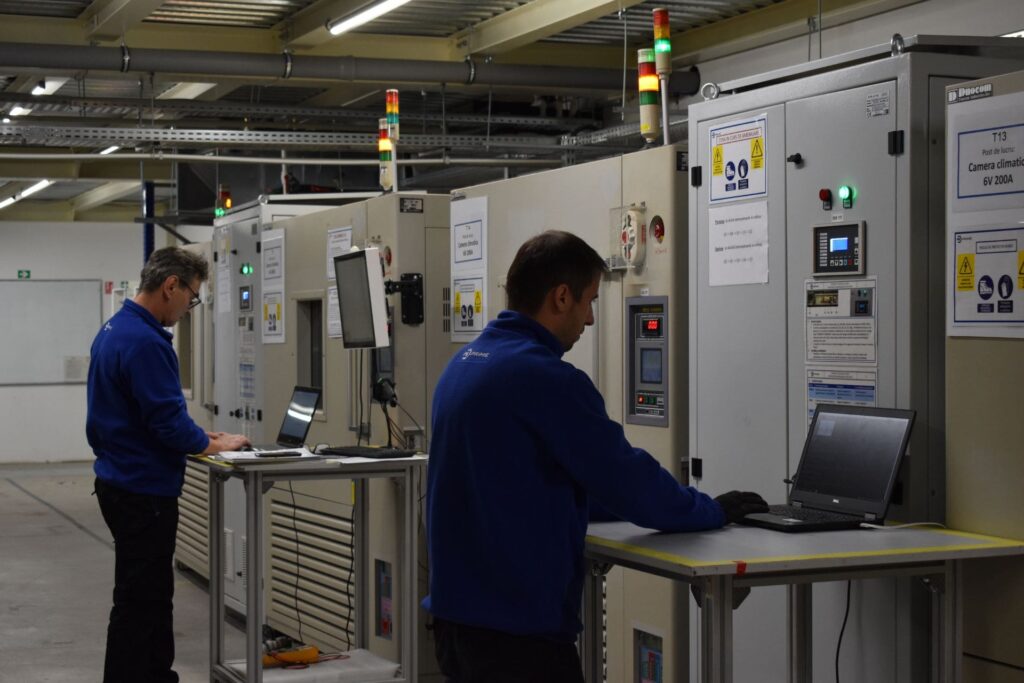
The existing Prime Batteries Technology factory in Cernica will receive an investment of about 200 million euros to increase the yearly output of the present level of 2GWh. According to business leaders’ predictions, the group wants to grow this capacity to 8 GWh, boosting the investment to more than 1 billion euros by 2026.
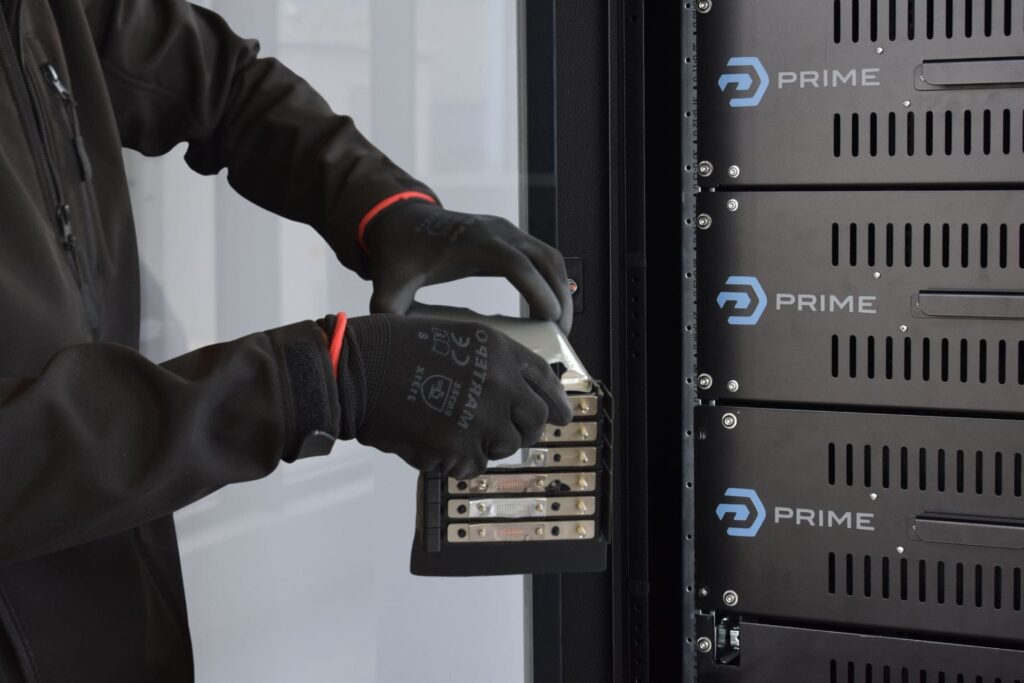
„A 30–35% component of the funding will come from investment funds focused only on renewable energy causes, with the remaining amount funded by loans. Additionally, we sent a memo to the Ministry of Energy, and we are eagerly awaiting a response […..]”.
Adrian Polec, Stakeholder at Prime Batteries Technology
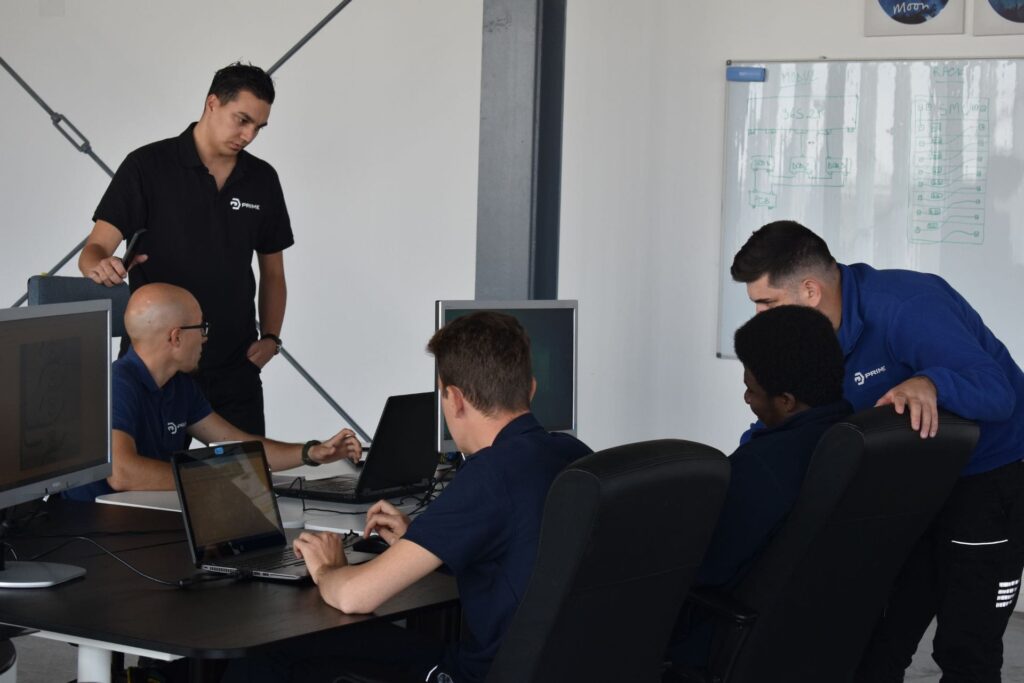
EIT InnoEnergy encourages innovation in several different areas. These fields include energy storage, transportation and mobility, renewable sources, and sustainable buildings and communities, all of which are supported by the company’s trustworthy network of more than 1200 partners and 29 shareholders. The portfolio, which has over 180 businesses, will have made 72.8 billion euros in revenue and avoided 1.1 gigatons of carbon dioxide from entering the environment by 2030.
- Published in News

